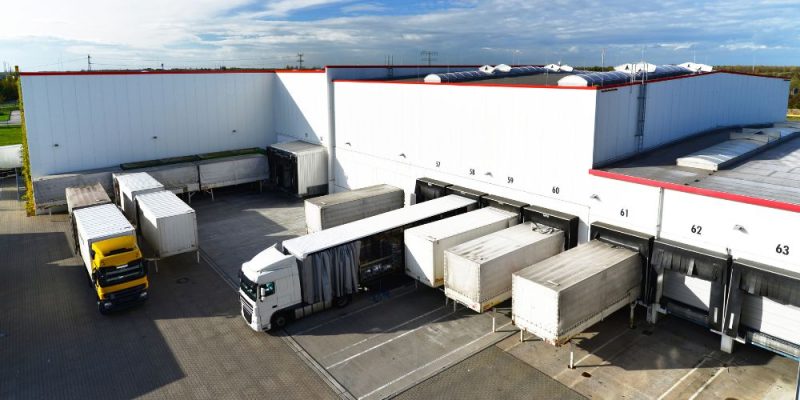Understanding Warehouse Management Systems (WMS)
A Warehouse Management System (WMS) is a software solution intended to optimize all aspects of warehouse operations. A WMS streamlines process to improve accuracy and efficiency, from inventory control and management to ordering and shipping. The decision to implement a warehouse management system can significantly impact a company’s operational dynamics, affecting everything from resource management to customer satisfaction. This detailed buyer’s guide delves into the key features to look for in a WMS, tailored to different business sizes and industries and walks you through the decision-making process at this critical stage.
What to Look for in a Warehouse Management System

When choosing a WMS, it’s essential to consider features that align with your specific business needs. Here are some of the key functionalities to look out for :
1. Inventory Management
A good WMS provides real-time inventory tracking, which helps to avoid stockouts and overstock situations. Look for systems that can provide detailed information about your inventory levels, order status, and storage locations.
2. Integration Capabilities
The ability to integrate with other systems is important, including ERP (Enterprise Resource Planning), SCM (Supply Chain Management), and CRM (Customer Relationship Management). Seamless integration ensures that data flows smoothly across all platforms, improving data accuracy and business intelligence.
3. Scalability
Your WMS should grow alongside your business. Scalability is essential for adapting to increased volumes while maintaining performance.
4. Connectivity for Comprehensive Business Management
An intuitive and easy-to-navigate user interface is critical for operational efficiency. Your employees should be able to learn and apply the system without extensive training.
5. Reporting and Analytics
Data-driven insights are required for sound decision-making. A suitable WMS includes comprehensive reporting tools that provide insight into performance metrics and operational inefficiencies.
6. Mobile Compatibility
With the increasing use of mobile devices in warehouse operations, a WMS should be mobile-compatible, allowing employees to perform tasks efficiently from the warehouse floor.
Choosing a WMS Based on Business Size and Industry

Small to Medium-sized Enterprises (SMEs):
- Cost-Effectiveness : SMEs should prioritize cost-effective WMS solutions that provide essential functionalities without high costs.
- Ease of Use : Systems with straightforward functionalities that can be easily handled by smaller teams.
- Cloud-Based Solutions : These offer scalability and remote access without the need for heavy initial investment in IT infrastructure.
Large Enterprises :
- Advanced Features : Large businesses might require features like batch picking, wave planning, and cross-docking to enhance their complex operations.
- Customization : A system that can be tailored to fit the unique processes and workflows of a large operation.
- Support and Training : Comprehensive support and training are crucial for large teams to ensure smooth implementation and operation.
Industry-Specific Considerations:
- Retail : Look for features that support e-commerce integrations, handle high SKU counts, and manage continuous order fulfillment.
- Manufacturing : Needs might include material handling, batch tracking, and integration with manufacturing execution systems.
- Food and Beverage : Important features might include batch tracking, expiry date management, and compliance with health regulations.
Evaluating WMS Providers : A Checklist

Choosing a WMS isn’t just about features. Consider the vendor’s reputation for customer support, their implementation track record, and the system’s ease of integration. When evaluating potential WMS providers, consider the following:
- Experience and Expertise : Look for providers with a strong track record and expertise in your specific industry.
- Customer Support : A provider’s support structure is critical. Ensure that they provide comprehensive training and support to facilitate a smooth transition and ongoing operations.
- Client Testimonials : Check reviews and testimonials from other businesses similar to yours. This can provide insights into the reliability and effectiveness of the provider and their system.
- Cost vs. Value : While cost is a significant factor, consider the overall value the system brings to your operations. A cheaper option might end up costing more in the long run if it lacks essential features or scalability.
Wrap-Up: Your Path to a Streamlined Warehouse

Choosing the right warehouse management system is a strategic decision that impacts many aspects of a business. By taking into account the specific features required for your industry and business size, as well as the scalability, integration capabilities, and support provided, you can ensure that your chosen WMS will meet your current and future requirements.
Choosing the right WMS is about more than just managing inventory; it’s about transforming your operations and meeting your business objectives. Make an informed decision by considering your specific business needs and the capabilities of potential WMS providers.
Let us help you take control of your inventory management with cutting-edge technology tailored to your business needs. Get in touch with us today!





